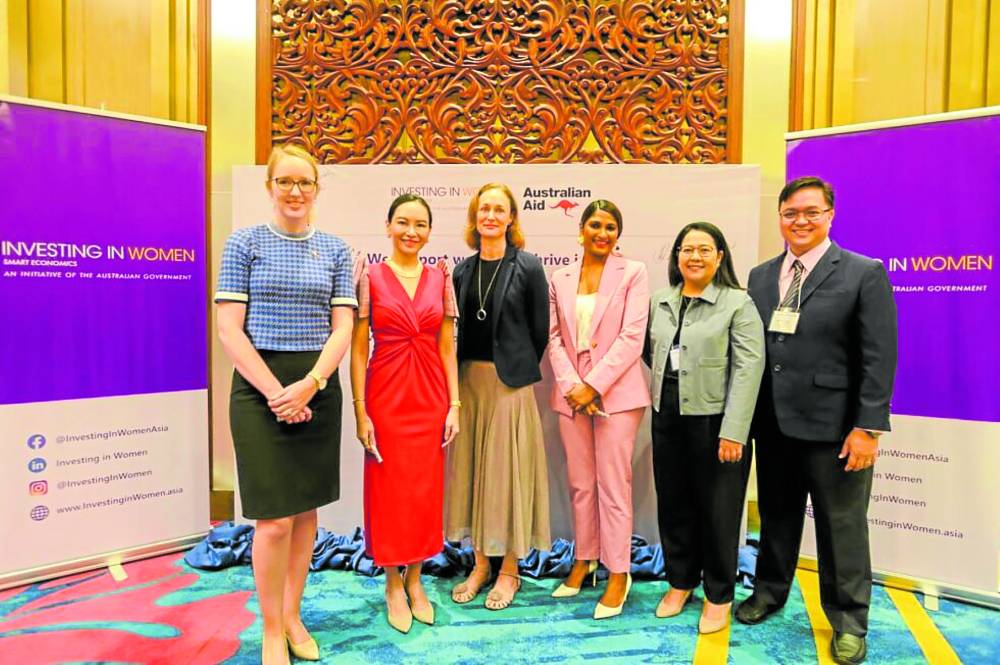
WOMEN LEADERS (From left) Australia Deputy Ambassador to the Philippines Moya Collett, DSWD Undersecretary Emmeline Aglipay Villar, Investing in Women CEO Hannah Birdsey, Villgro Philippines CEO Priya Thachadi, Oxfam Pilipinas executive director Erika Geronimo, ACCIONA Infrastructure head of HR for Southeast Asia Adrian Tiozon —PHOTO FROM INVESTING IN WOMEN
Local businesses owned or led by women will receive further support from Australia upon launching the second phase of “Investing in Women” (IW) program that advocates workplace gender equality.
“Ensuring women have opportunities to engage equitably in the workforce provides great economic and social dividends,” Australia Deputy Ambassador Moya Collett says.
Since its inception in 2016, IW’s accomplishments include the establishment of the Philippine Business Coalition for Women Empowerment on the back of the P199.51 million investment in 34 women-led and-owned small and medium enterprises and P624.89 million in private investment.
Advancing gender equality
The coalition has trained more than 300 female smallholder farmers, about 3,000 female agri-distributors, and 557 female teachers.
Collett cites a 2018 study by McKinsey & Company that revealed that advancing gender equality in the Philippines across all socioeconomic groups could boost gross domestic product (GDP) growth by up to 7 percent.
READ: The power of women investing in women
“We have invested 5.3 million dollars in businesses owned or led by women and capitalized an additional 16.6 million in investment,” Collet adds.
Emmeline Aglipay Villar, undersecretary of theDepartment of Social Welfare and Development (DWSD), cites an International Monetary Fund estimate that granting women equal opportunities could lead to an 8-percent increase in GDP.
“Closing the gender gap entirely, meanwhile, could boost GDP by an average of 23 percent. [It] sounds shocking and maybe we should give it a chance,” she says.
Villar cites DSWD’s five-year sustainability program called “Sibol” which supports women entrepreneurs through incubation, capacity-building activities, and livelihood incentives.
To make it more community-driven, women can create groups of five to 30 members, allowing them to combine livelihood grants.
Villar said 113,961 women enterprises had benefited from the program in 2023.
“[We] are one with the Australian government and its partners in championing gender equality and equal access to opportunities which are essential factors in achieving inclusive and sustainable growth and development,” she adds. INQ

